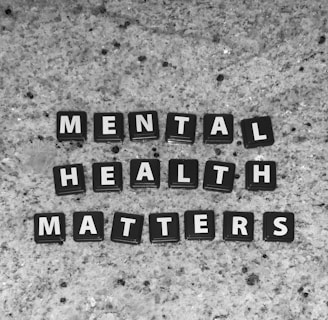Mental Filters
Mental Filters: How Our Perceptions Shape Our Reality
SELF HELPEMOTIONAL ECHOES
9/30/20233 min read


Mental Filters: How Our Perceptions Shape Our Reality
The human mind processes an astonishing amount of information daily. To manage this influx of data, our brains employ a variety of cognitive shortcuts and filtering mechanisms. One such mechanism is the use of mental filters, which help us sort, prioritize, and interpret the overwhelming amount of information that bombards us daily. In this article, we will delve into the concept of mental filters, their role in shaping our perceptions, and how to use them more consciously for a clearer understanding of the world around us.
Understanding Mental Filters
Mental filters are mental processes that selectively screen and interpret incoming information based on our beliefs, experiences, values, and expectations. These filters act as subconscious gatekeepers, allowing certain information to pass through while blocking or distorting other information. Mental filters influence our thoughts, emotions, and behaviors, ultimately shaping our perceptions of reality.
Common Types of Mental Filters
Confirmation Bias: This filter leads individuals to seek and favor information that confirms their existing beliefs and opinions while ignoring or downplaying contradictory information. Confirmation bias can reinforce preconceived notions and limit intellectual growth.
Cognitive Dissonance: When faced with conflicting beliefs or information, cognitive dissonance is the filter that causes discomfort. To alleviate this discomfort, individuals may reject or rationalize the conflicting information rather than adjusting their beliefs.
Filtering for Negativity: Some people habitually focus on negative aspects of situations, ignoring or minimizing positive elements. This filter can lead to pessimism and a skewed perspective on life.
Selective Attention: Selective attention directs our awareness to certain stimuli while ignoring others. For example, when in a crowded room, you might pay attention to the conversation you're engaged in while filtering out background noise.
Mental Filtering for Fear or Anxiety: This filter causes individuals to selectively process information that confirms their fears or anxieties, often magnifying perceived threats and hindering rational thinking.
The Impact of Mental Filters
Mental filters can significantly impact our lives in various ways:
Perceptual Distortion: Mental filters distort our perception of reality, creating a version of the world that aligns with our preexisting beliefs and expectations.
Reinforcement of Biases: Filters can reinforce cognitive biases, making it difficult to consider alternative viewpoints or embrace change.
Emotional Influence: Mental filters can trigger emotions such as anger, fear, or sadness, as they often focus on information that aligns with our emotional states.
Decision-Making: Our filters influence the decisions we make by shaping the information we use to form judgments and choices.
Interpersonal Relationships: Mental filters can impact our relationships by causing us to misinterpret others' intentions or by reinforcing negative perceptions of those around us.
Using Mental Filters Consciously
While mental filters are a natural part of human cognition, it's possible to use them more consciously to enhance our understanding of the world:
Awareness: Recognize your own mental filters and biases. Acknowledging their existence is the first step in using them more intentionally.
Seek Diverse Perspectives: Actively seek out information and viewpoints that challenge your existing beliefs. This can help counteract confirmation bias and broaden your perspective.
Mindfulness: Practice mindfulness to observe your thoughts and emotions without judgment. This can help you identify and regulate the influence of mental filters.
Engage in Critical Thinking: Develop critical thinking skills to evaluate information objectively and consider alternative explanations or viewpoints.
Emotional Regulation: Be mindful of how your mental filters influence your emotional responses. Practice emotional regulation techniques to manage intense emotions that may arise from biased thinking.
Mental filters are powerful cognitive mechanisms that shape our perceptions and responses to the world around us. While they are an inherent part of human cognition, it's essential to use them consciously and critically. By becoming aware of our mental filters and actively seeking a more balanced and open-minded perspective, we can better navigate the complexities of the world and make more informed decisions. Understanding the role of mental filters is a step toward a clearer, more accurate perception of reality.
